Understanding fractions Easy Geometry Worksheets for Ages 6-8
16 filtered results
-
From - To
Explore "Understanding Fractions: Easy Geometry Worksheets for Ages 6-8," where young learners can master fractions through engaging, age-appropriate activities. Designed specifically for children ages 6 to 8, these worksheets provide colorful visuals and interactive exercises that make learning about parts of a whole fun and accessible. From identifying fractions in everyday life to using shapes to visualize concepts, our resources build foundational math skills essential for future success. Help your child boost confidence and understanding in math with our easy-to-follow exercises, which blend educational content with creativity. Get started today and support your child’s journey in mastering fractions!
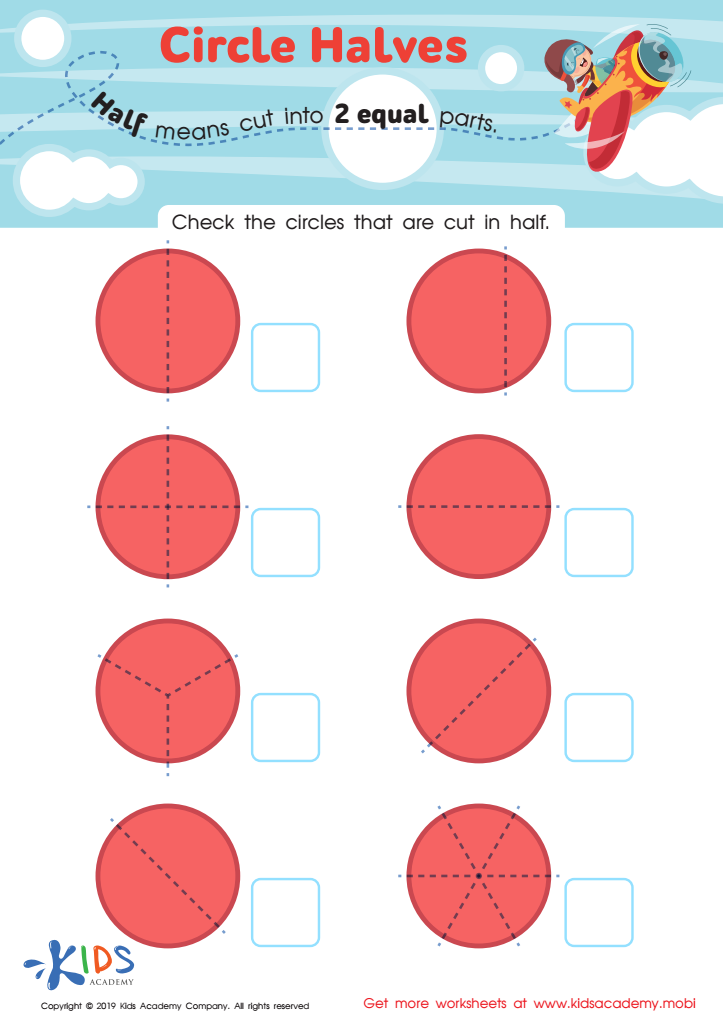

Circle Halves Worksheet
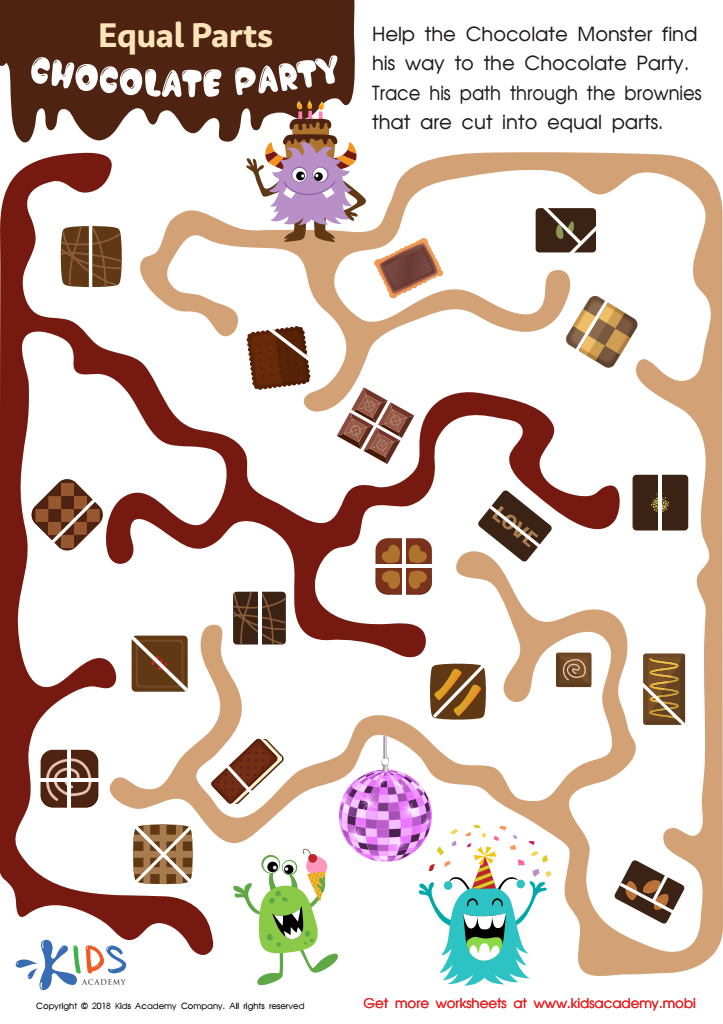

Equal Parts: Chocolate Party Worksheet
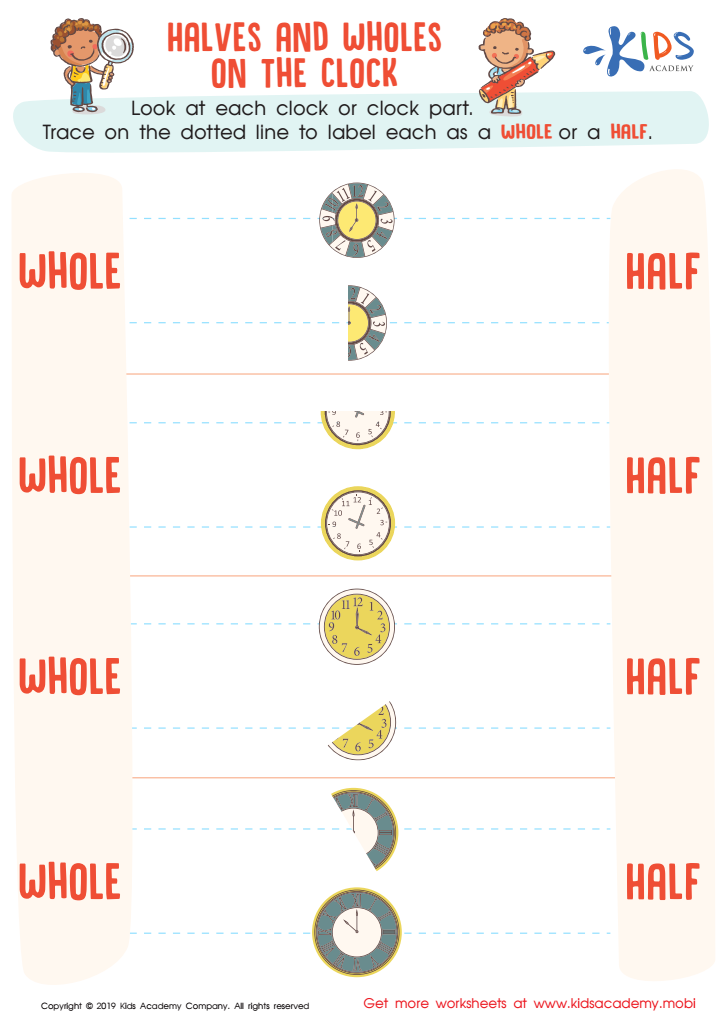

Halves and Wholes on the Clock Worksheet
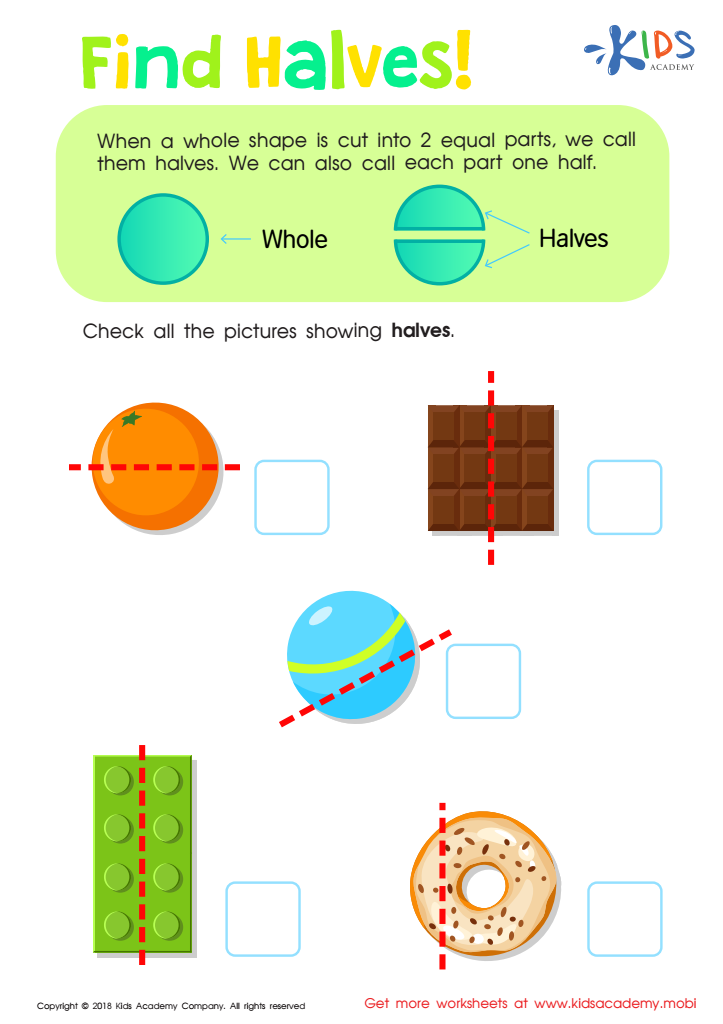

Find Halves Worksheet
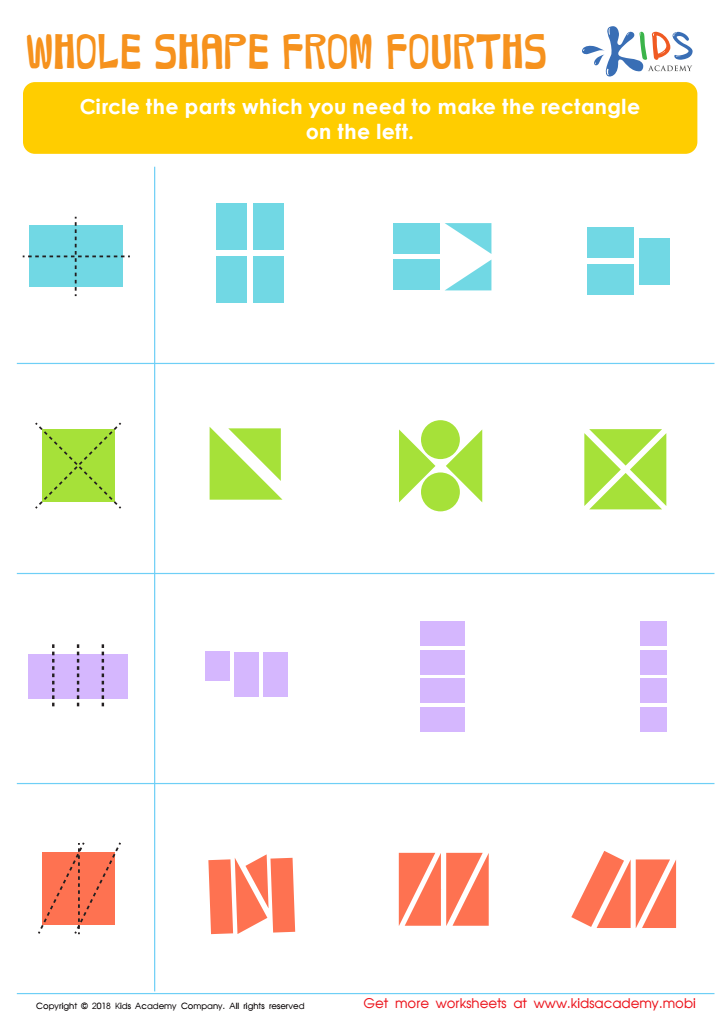

Whole Shape from Fourths Worksheet
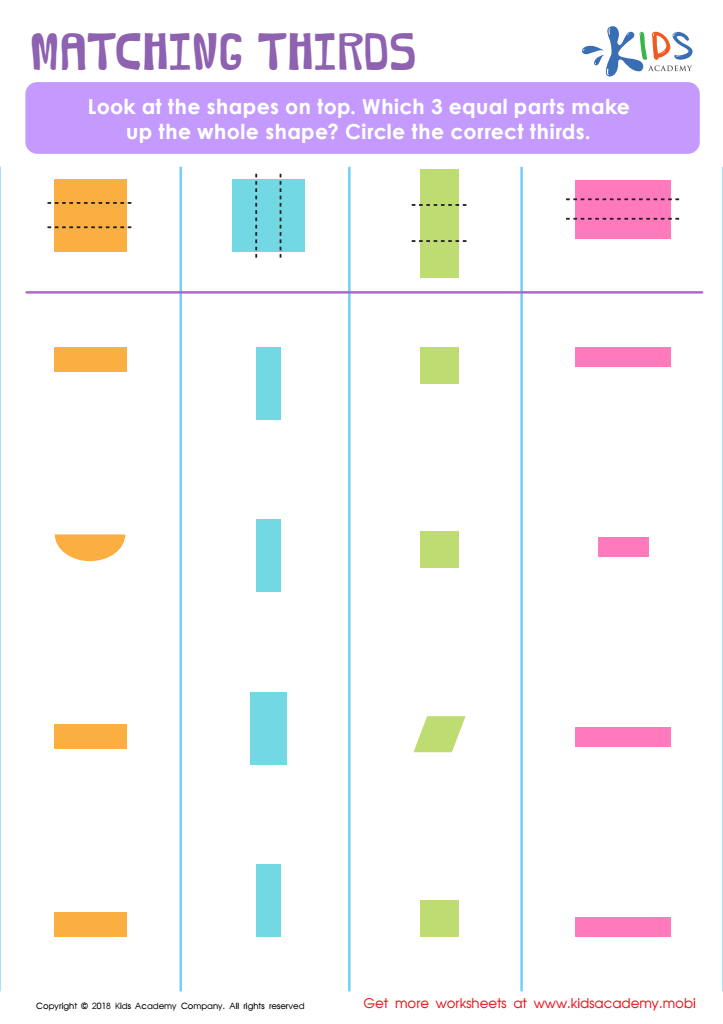

Matching Thirds Worksheet
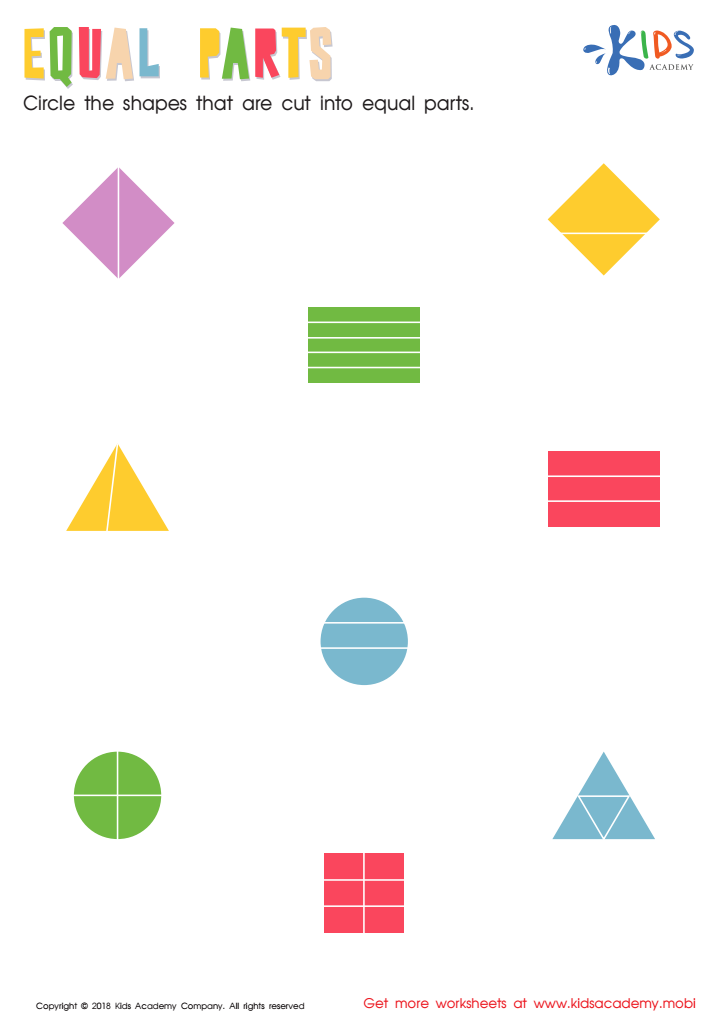

Equal Parts: Shapes Worksheet
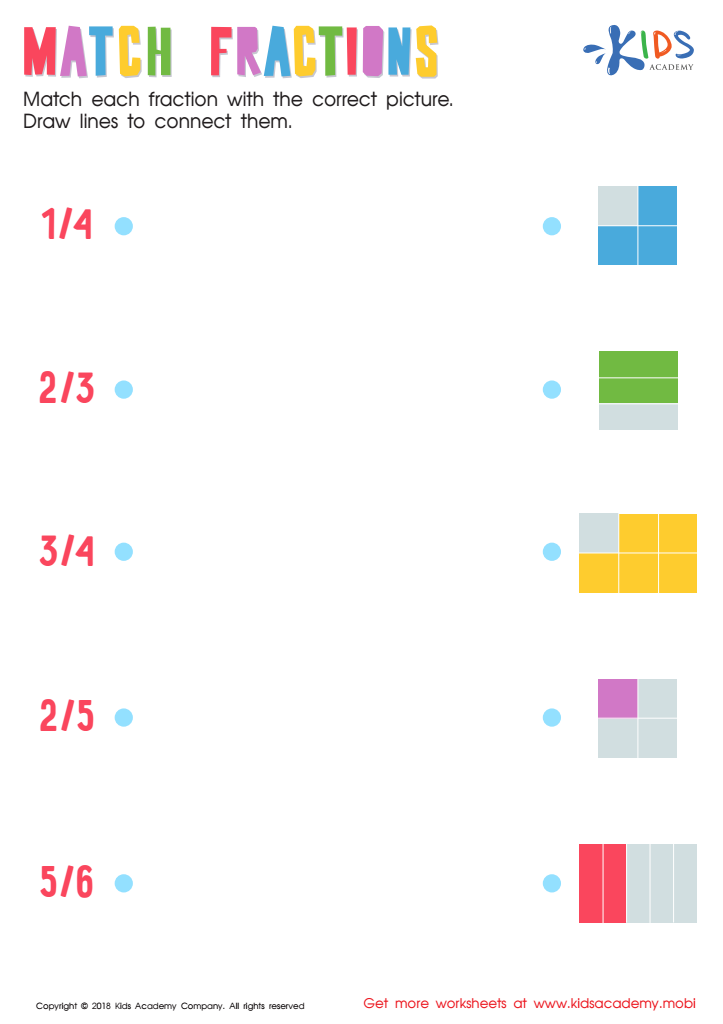

Match Fractions Worksheet
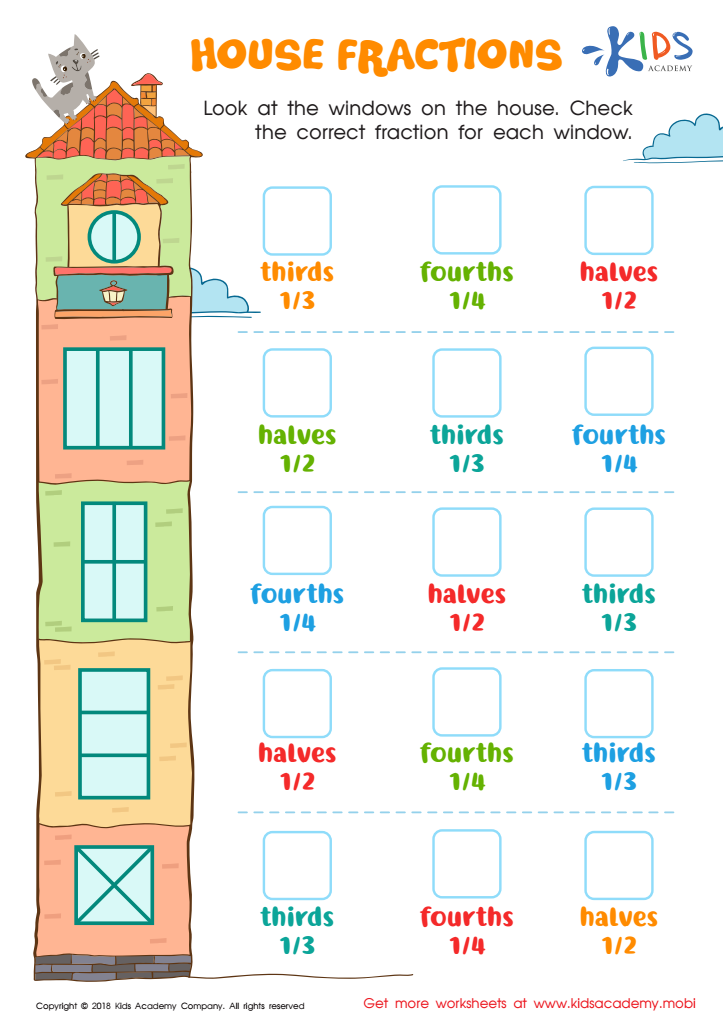

House Fractions Worksheet
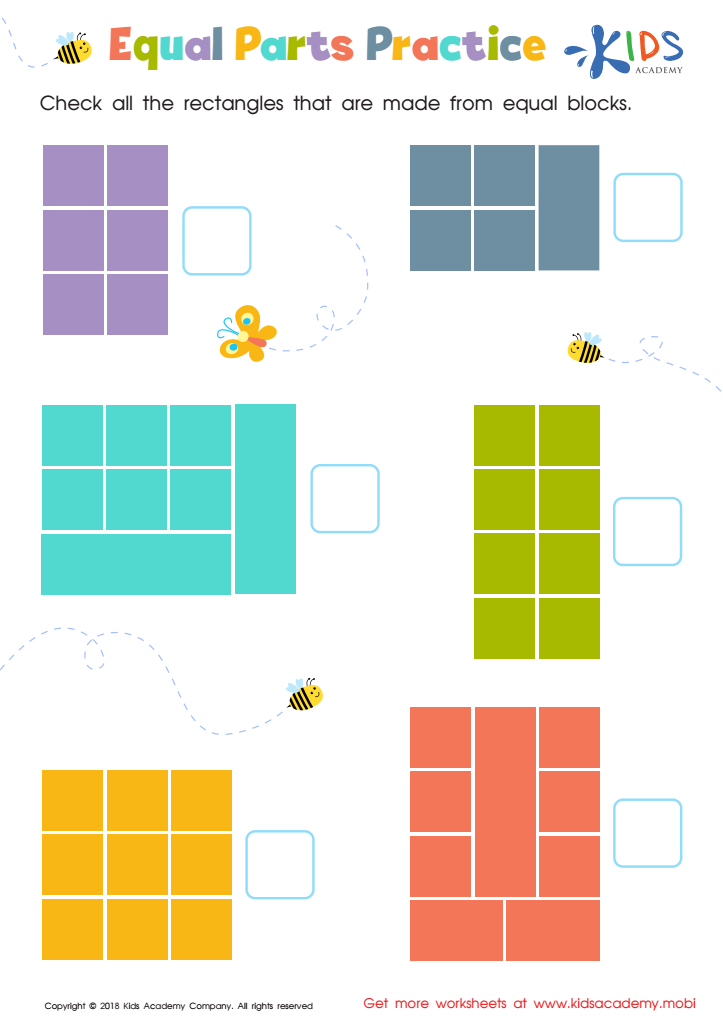

Equal Parts Practice Worksheet
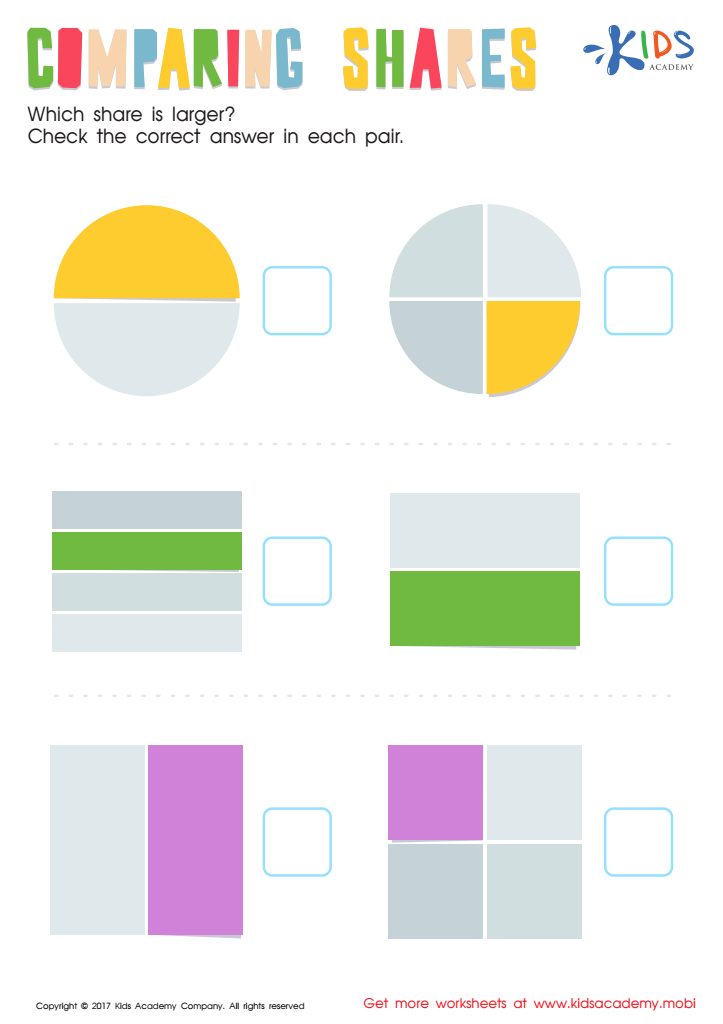

Comparing Shares Worksheet
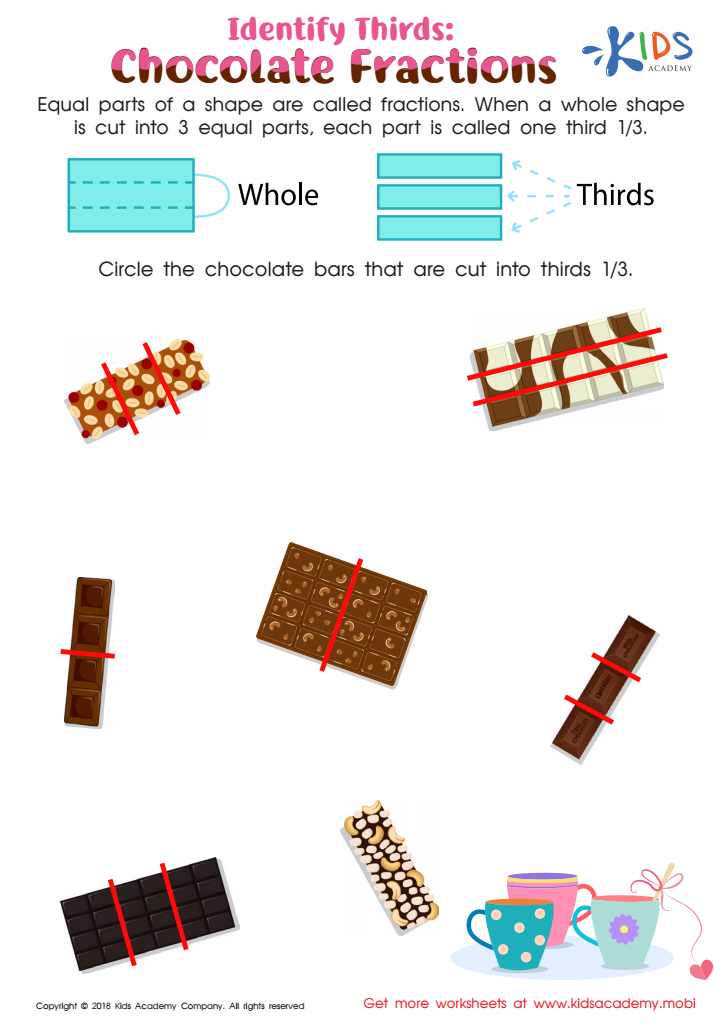

Identify Thirds: Chocolate Fractions Worksheet
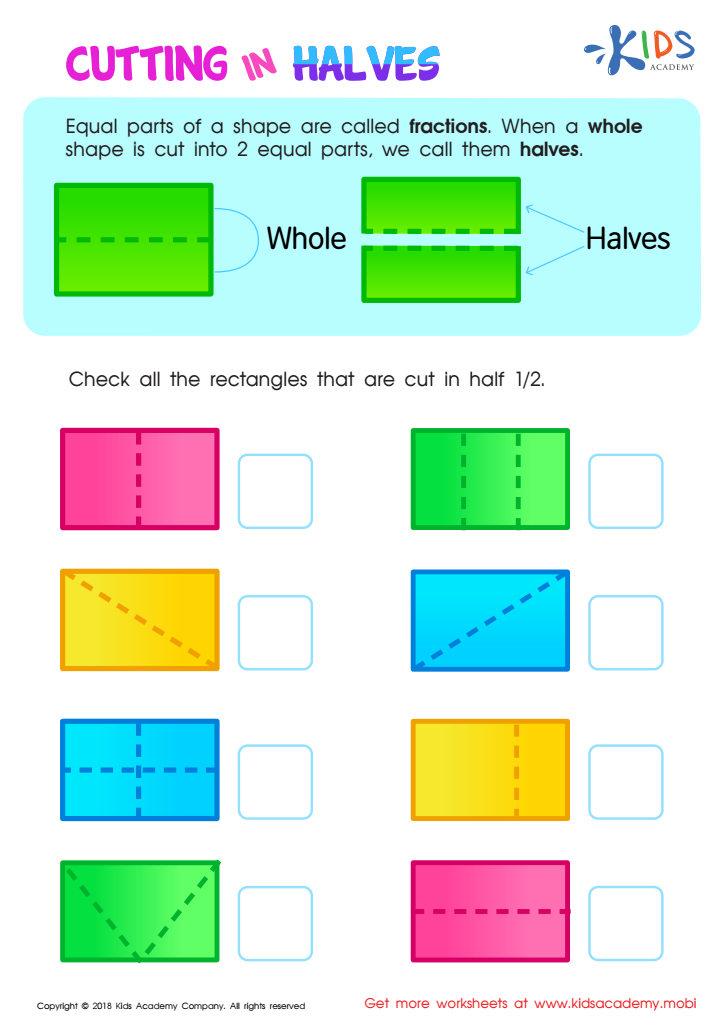

Cutting in Halves Worksheet
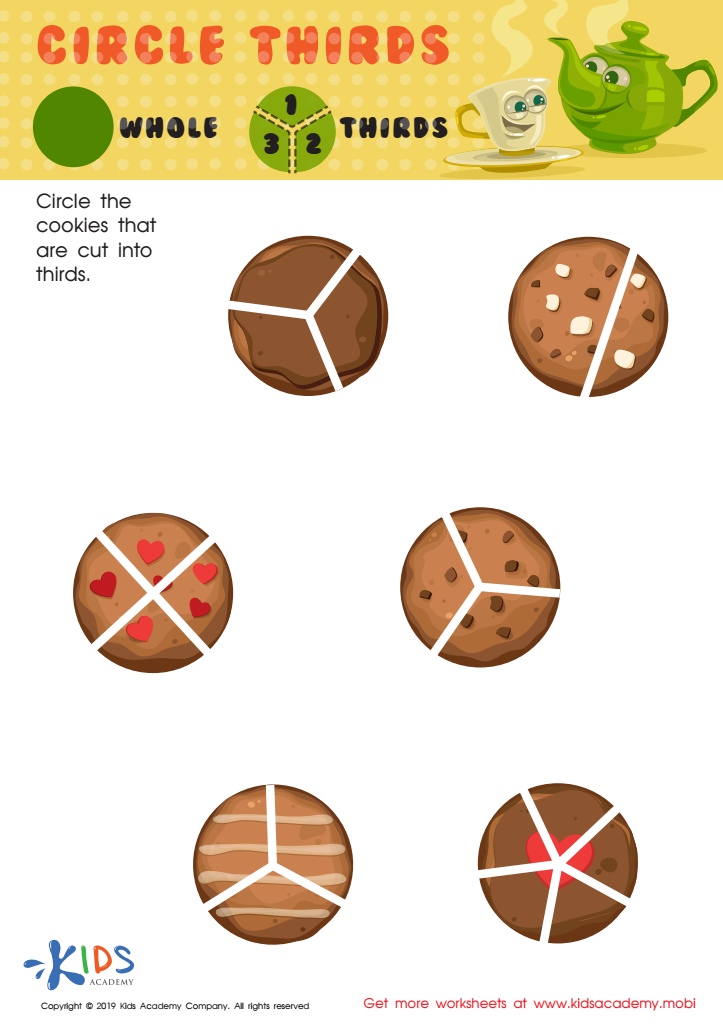

Circle Thirds Worksheet
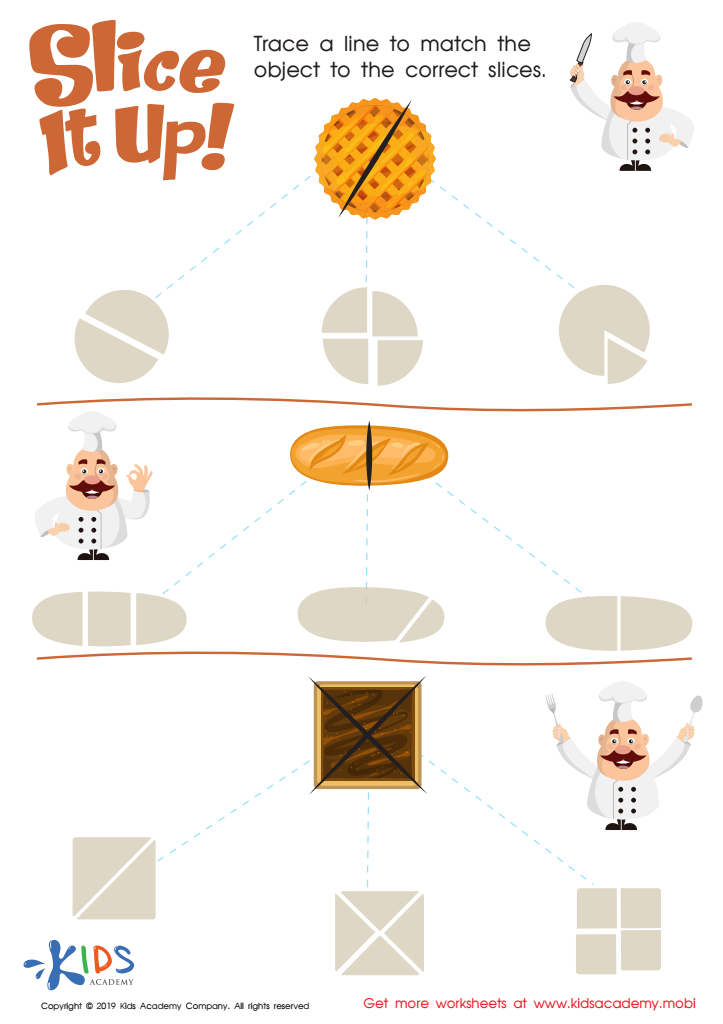

Slice It Up Worksheet
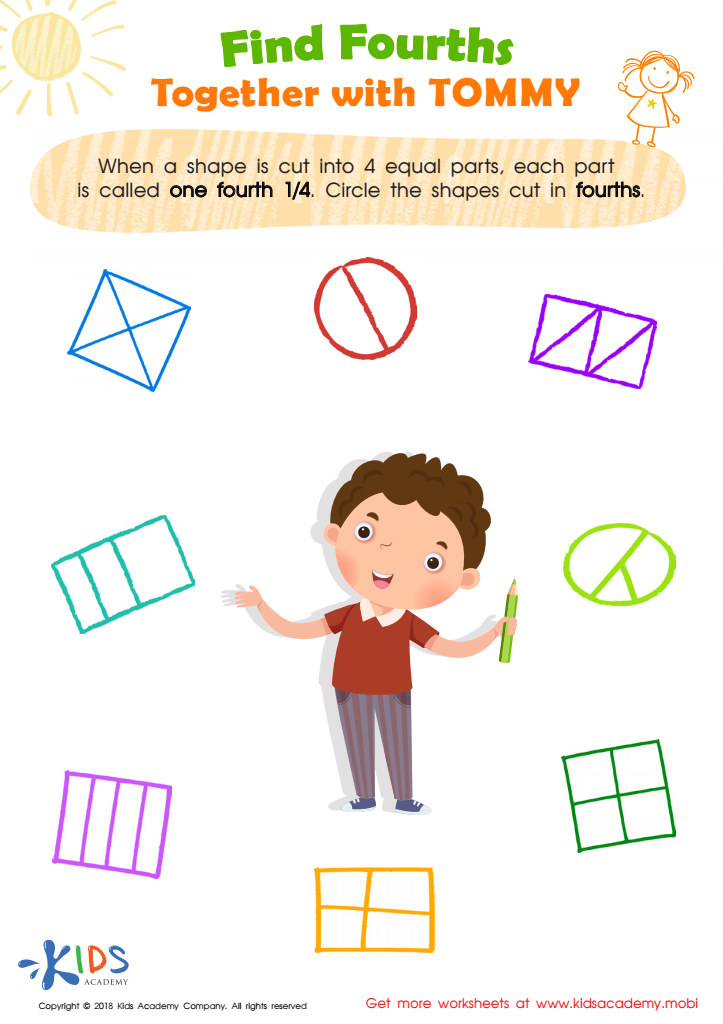

Find Fourths Together with Tommy Worksheet
Understanding fractions and basic geometry is crucial for children aged 6-8, as these foundational concepts shape their mathematical skills and cognitive development. At this age, children are beginning to engage with numbers and shapes beyond simple counting, and a solid grasp of fractions lays the groundwork for future math education. Fractions introduce the idea of parts of a whole, helping children understand relationships and proportions, which are applicable in everyday situations like cooking or sharing.
Moreover, easy geometry fosters spatial awareness and critical thinking skills. Learning about shapes and their properties, alongside basic measurements, enhances problem-solving abilities. As children explore concepts such as symmetry and spatial reasoning, they develop the skills needed to navigate their environment confidently.
Additionally, teaching these topics promotes collaboration and communication among peers during activities, enhancing social skills. It cultivates curiosity and engagement through hands-on learning experiences, making math enjoyable. For parents and teachers, focusing on understanding fractions and geometry not only equips children with essential mathematical skills but also nurtures a positive attitude towards learning. Ultimately, this foundation supports students in overcoming challenges in later grades, ensuring a smooth transition into more complex concepts and real-world applications.
 Assign to My Students
Assign to My Students































